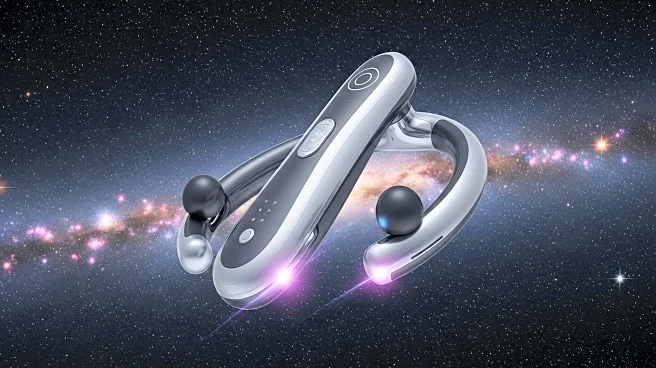What's Happening?
TIME magazine has included the Rally Orbital Massager in its annual list of the Best Inventions of 2025. Launched in June 2025, the Rally Orbital Massager is gaining popularity among elite athletes, including those in the NBA, WTA, ATP, and Olympic teams. The device is noted for its innovative orbital therapy, which offers a broader and more precise treatment compared to traditional percussive devices. It features three speeds ranging from 1600 to 3200 RPM and interchangeable attachments for whole-body relief. The massager is designed to reduce muscle soreness without the discomfort associated with high-force percussion, and its CALM technology significantly reduces noise and vibration, making it suitable for use in shared spaces.
Why It's Important?
The recognition by TIME underscores the growing importance of innovation in the recovery and wellness sector. The Rally Orbital Massager's design caters to both everyday users and elite athletes, offering a low-impact modality that is gentle enough for seniors and those with chronic conditions. This innovation could lead to broader adoption of advanced recovery tools, potentially improving long-term health and wellness outcomes. The device's ability to provide effective muscle recovery while minimizing discomfort and noise could set new standards in the industry, influencing future product designs and consumer expectations.
What's Next?
The inclusion in TIME's list may boost the visibility and credibility of the Rally Orbital Massager, potentially increasing its market penetration. As more athletes and consumers become aware of its benefits, there could be a rise in demand for similar recovery technologies. The company may explore further innovations or enhancements to maintain its competitive edge and meet the evolving needs of its users.
Beyond the Headlines
The Rally Orbital Massager's design reflects a shift towards more user-friendly and versatile recovery tools. Its hypoallergenic and water-resistant features highlight a growing trend in the industry towards products that integrate seamlessly into daily life, offering convenience without compromising on efficacy. This could lead to a broader cultural acceptance of recovery technology as an essential component of personal health management.









